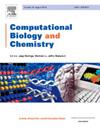Development and validation of AI-driven multi-omics language models for cancer genomics: A comprehensive review
IF 3.1
4区 生物学
Q2 BIOLOGY
引用次数: 0
Abstract
The pervasive challenges in cancer management, ranging from accurate early diagnosis to effective personalised therapies and precise patient stratification, represent significant clinical unmet needs. Artificial intelligence (AI) is transforming cancer research by offering unprecedented capabilities in analysing complex genomic datasets. AI has completely transformed omics research by simplifying the integration of multi-omics data, offering more profound insights into cancer heterogeneity, and enhancing predictive models for patient treatment responses. In the past decade, numerous studies have highlighted how AI has revolutionised omics research. AI models are instrumental in enhancing oncology by addressing these unmet needs through improved clinical trial matching, refined risk assessment, and precise treatment selection. They contribute to more personalised and effective cancer care by classifying cancer types and subtypes, identifying biomarkers, predicting drug responses, stratifying patients, and analysing tumour evolution and heterogeneity. This comprehensive review specifically focuses on the development and validation of AI-powered multi-omics language models for cancer genomics. We posit that the integration of diverse omics data types provides synergistic insights beyond single-omics approaches, which are critical for unravelling cancer heterogeneity and addressing the complex challenges within cancer genomics. The review highlights recent advances, current difficulties, and potential paths forward for these integrated AI approaches. We also detail the main elements of these models, such as their architectures, training plans, evaluation techniques, and data preprocessing. All things considered, multi-omics language models powered by AI hold immense promise for deriving biological insights from intricate cancer genomic data and converting them into actionable information for clinical settings.
人工智能驱动的癌症基因组学多组学语言模型的开发和验证:综述
从准确的早期诊断到有效的个性化治疗和精确的患者分层,癌症管理中普遍存在的挑战代表了重大的临床未满足需求。人工智能(AI)在分析复杂的基因组数据集方面提供了前所未有的能力,正在改变癌症研究。人工智能通过简化多组学数据的整合,为癌症异质性提供更深刻的见解,并增强患者治疗反应的预测模型,彻底改变了组学研究。在过去的十年里,许多研究都强调了人工智能如何彻底改变了组学研究。人工智能模型通过改进临床试验匹配、改进风险评估和精确治疗选择来解决这些未满足的需求,有助于加强肿瘤学。它们通过分类癌症类型和亚型、识别生物标志物、预测药物反应、对患者进行分层以及分析肿瘤演变和异质性,有助于实现更个性化和更有效的癌症治疗。这篇全面的综述特别侧重于开发和验证人工智能驱动的癌症基因组学多组学语言模型。我们认为,不同组学数据类型的整合提供了超越单一组学方法的协同见解,这对于揭示癌症异质性和解决癌症基因组学中的复杂挑战至关重要。该综述强调了这些综合人工智能方法的最新进展、当前困难以及潜在的前进道路。我们还详细介绍了这些模型的主要元素,例如它们的体系结构、训练计划、评估技术和数据预处理。综上所述,由人工智能驱动的多组学语言模型有望从复杂的癌症基因组数据中获得生物学见解,并将其转化为临床环境中的可操作信息。
本文章由计算机程序翻译,如有差异,请以英文原文为准。
求助全文
约1分钟内获得全文
求助全文
来源期刊

Computational Biology and Chemistry
生物-计算机:跨学科应用
CiteScore
6.10
自引率
3.20%
发文量
142
审稿时长
24 days
期刊介绍:
Computational Biology and Chemistry publishes original research papers and review articles in all areas of computational life sciences. High quality research contributions with a major computational component in the areas of nucleic acid and protein sequence research, molecular evolution, molecular genetics (functional genomics and proteomics), theory and practice of either biology-specific or chemical-biology-specific modeling, and structural biology of nucleic acids and proteins are particularly welcome. Exceptionally high quality research work in bioinformatics, systems biology, ecology, computational pharmacology, metabolism, biomedical engineering, epidemiology, and statistical genetics will also be considered.
Given their inherent uncertainty, protein modeling and molecular docking studies should be thoroughly validated. In the absence of experimental results for validation, the use of molecular dynamics simulations along with detailed free energy calculations, for example, should be used as complementary techniques to support the major conclusions. Submissions of premature modeling exercises without additional biological insights will not be considered.
Review articles will generally be commissioned by the editors and should not be submitted to the journal without explicit invitation. However prospective authors are welcome to send a brief (one to three pages) synopsis, which will be evaluated by the editors.
 求助内容:
求助内容: 应助结果提醒方式:
应助结果提醒方式:


